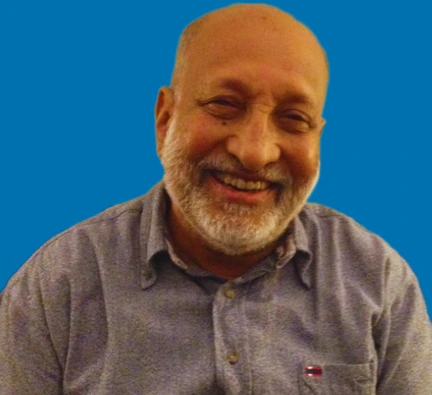Aiding Arab freedom serves U.S.
(Published in the Columbus Dispatch, April 30, 2011)
By Mustafa Malik
Democratization of Arab societies “would be a disaster” for the West, warns Princeton University scholar Bernard Lewis. Yet he predicts that Islamic political parties are “very likely to win … genuinely fair and free elections” in the Arab world.
One of the West’s best-known historians of Islam, Lewis has echoed what many American intellectuals and politicians are saying in private. And sometimes in public. Democracy, they argue, brought Hamas “terrorists” to power in Palestine and has given Hezbollah “terrorists” a lock on the Lebanese government. Democracy has replaced Iraq’s staunchly secular and anti-Iranian — albeit autocratic — regime with a pro-Iranian pseudo-theocracy. And in Turkey, an anti-Israeli government rooted in Islam has replaced an ultra-secularist and pro-Israeli ruling establishment through free and fair elections.
Ironically, Lewis had personally lobbied former President George W. Bush to invade Iraq and democratize it and other Arab societies. Many Americans supported that campaign. The new drive to sit out Arab democratic upheavals is also shared by many Americans, especially politicians and pundits. Among them Nicholas Goldberg, the editorial page editor of the Los Angeles Times.
“It would not be beneficial to the United States for the Middle East to be democratic,” Goldberg wrote. Democracy would replace the current pro-Western Arab governments, especially in the oil-rich Persian Gulf, with anti-Western Islamic regimes. That would force the West “to pay a fair price for petroleum, which would shake the foundation of the [Western] economic system.”
Both the Arab democratization campaign of the last decade and today’s opposition to Arab democracy have a common goal: resisting Islamic forces from seizing the reins of government. Both are based on a dire misperception, i.e. that Islam-oriented regimes would necessarily endanger U.S. or Western interests.
It’s a tribute to the West that most of the Muslim and non-Muslim societies that once fought hard to throw off Western colonial yoke have adopted or are pursuing Western political institutions – political parties, elections, parliaments, press freedom, and so forth. Yet these societies remain deeply rooted in their own traditions and heritage. In fact the post-colonial Muslim and non-Muslim generations in the East are showing greater appreciation of their indigenous traditions than did their forebears who were brought up under Western colonial rule.
Thus in Muslim countries such as Iran, Iraq, Turkey, Egypt and Sudan, Westernized ruling elites have given or are giving way to political forces rooted in Islam. In others such as Israel, Jordan, Lebanon, Kuwait, Pakistan, India and Indonesia, political parties anchored to native traditions are on the rise and forcing the adaptation of their Western-oriented state laws to native traditions.
Islam is the bedrock of Muslim social and cultural traditions. Indigenization of a Muslim society’s political process means its adjustment to Islamic values and lifestyle. Decades of Western cultural and military campaigns have failed to stem this trend. Western antipathy or indifference toward Arab pro-democracy movements wouldn’t do it, either.
But the very concern that Islamic political activism would threaten Western interests is also unfounded. Sure, anti-Americanism is agitating many Muslim minds, and it sometimes triggers terrorism. But contemporary Muslim anti-Americanism has been spawned by the American invasion, occupation and domination of a host of Muslim societies, not by Islam.
At all events, if mighty imperial armies couldn’t suppress anti-colonial movements in earlier times, today’s feckless and tottering Arab autocracies can’t ride out the greatest Arab populist upheaval in a millennium. (The Arab nationalist movement of the early twentieth century was confined mostly to military and political elites.)
The Arab spring has given America and the West an opportunity to protect their interests in that region by cultivating the revolutionary forces that are going to shape the policies and agenda of tomorrow’s Arab states.
The Obama administration needs to drop its policy of supporting some Arab pro-democracy movements and ignoring others. It should adopt a bold and principled policy of defending and aiding all populist Arab struggles. Democratic or populist governments in the Persian Gulf may ask the West to “pay a fair price for petroleum.” A fair price would be cheaper than the high price that could be demanded by governments alienated by American apathy or indifference toward the struggles that would have brought them to power.
♦ Mustafa Malik is an international affairs columnist in Washington. He conducted field research in a host of Middle Eastern and South Asian countries as a senior associate for the University of Chicago Middle East Center.

